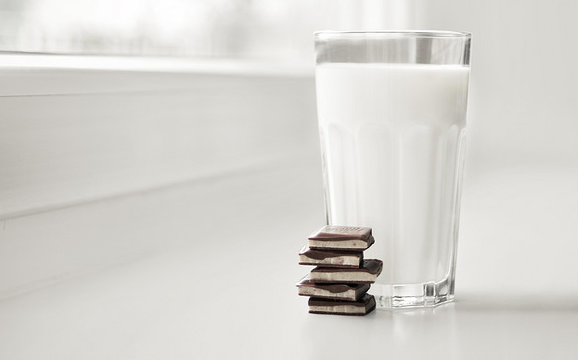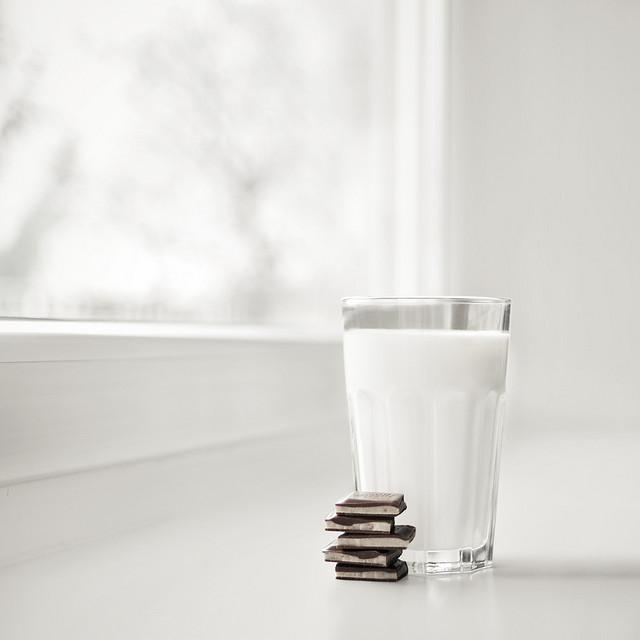
In a recent post I mentioned my struggle with eczema over the holiday season. In my research, I learned that this skin condition-which causes itching, redness, and rashes-is often connected to allergies. People can experience flare-ups in response to touching something they’re allergic to, but they can also get itchy when they eat something they’re allergic to.
Turns out that some of the most common triggers for eczema are dairy foods. Dairy is high in protein, and some of the proteins can be difficult for people to process inside the body. It’s kind of similar to the allergies people have to peanuts and wheat-these can both be related to proteins as well.
“The most suspect foods for contributing to eczema,” writes nationally known pediatrician Dr. Sears, “are dairy products, wheat, nuts, tomatoes, citrus fruits, egg whites, shellfish and soy.” Cow milk contains both whey protein and casein protein, both of which can be the culprits in eczema. Some people may also experience an intolerance to the lactose sugar in dairy (as in “lactose intolerance”) which can also cause an allergic reaction leading to eczema.
How can you tell if dairy is causing your eczema? It may be a long process, but you can do it. The best way is to eliminate all dairy foods from your diet for a few weeks, then gradually reintroduce them one at a time to help pin down the offending food.
What can make this process difficult is that dairy ingredients can be found in a lot more products besides just milk and ice cream. To be sure you’re getting all dairy and dairy-related products out of your diet, follow these steps:
- In addition to the more obvious milk, creams, ice cream, and yogurt foods, remember to eliminate milk chocolates, cheese, butter, custards, cottage cheese, and whipped topping.
- Watch out for words like whey, casein, caseinates, lactalbumin and lactose, as they are all derived from milk and may be present in a variety of products.
- Avoid processed foods, as many contain milk in their batters or sauces.
- Other foods that contain dairy products may include boxed cereals (with casein, nonfat milk powder or whey protein), cereal bars, prepared bread crumbs, processed sandwich breads, crackers, granola (often tossed with butter), and deli meats (may contain lactose or casein).
- Shop at health-food stores or in the health aisles of your supermarket, as these will have a good range of dairy alternative products.
- Stock your cupboards with dairy-free ingredients like beans, dried fruit, eggs, dairy-free dark chocolate, nuts, soy margarine, and almond, hemp or rice milk.
- Look for new dairy-free recipes and try them out.
Follow these steps for a few weeks, then gradually add dairy back in one food at a time. Start with milk itself, as if that causes your eczema to return, you’ll know that dairy is related somehow. Go off milk again for a week, then gradually add in other foods that contain dairy ingredients until you can adequately measure your tolerance.
Do you have dairy-induced eczema? Please share your tips.
Photo courtesy the ZitaaaMilk via Flickr.com.


